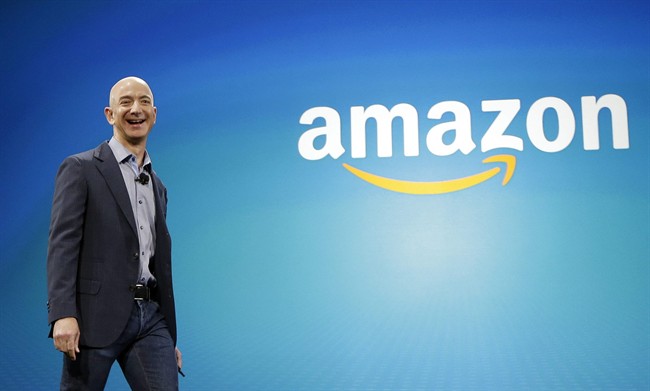NEW YORK – One of publishing’s nastiest, most high-profile conflicts, the months-long standoff between Amazon.com and Hachette Book Group, is ending.

Amazon and Hachette announced a multiyear agreement Thursday. With e-book revenues reportedly the key issue, Amazon had removed pre-order tags for Hachette books, reduced discounts and slowed deliveries.
“This is great news for writers,” Hachette CEO Michael Pietsch said in a statement. “The new agreement will benefit Hachette authors for years to come. It gives Hachette enormous marketing capability with one of our most important bookselling partners.”
David Naggar, an Amazon vice-president, said the company was pleased that the agreement “includes specific financial incentives for Hachette to deliver lower prices, which we believe will be a great win for readers and authors alike.”
The agreement takes effect early next year. Restrictions on Hachette books are being lifted immediately, according to the announcement, although delays on Carlos Santana’s “The Universal Tone,” J.D. Salinger’s “Nine Stories” and other works remained in place two hours after the news broke.
The Amazon-Hachette dispute had dominated publishing headlines and conversations for much of the year. James Patterson, John Green and hundreds of authors from various publishers had condemned Amazon, and Hachette author Stephen Colbert mocked the online retailer, which prides itself on customer service. Meanwhile, Hugh Howey, J.A. Konrath and other writers published by Amazon had blamed Hachette and praised Amazon for keeping prices down and allowing authors unhappy with traditional publishers to release their work elsewhere.
Amazon and Hachette had exchanged increasingly hostile press statements, with Amazon even invoking George Orwell (less than precisely) in its criticism of Hachette.
Neither side had seemed to benefit. Hachette sales on Amazon.com, the country’s biggest bookseller and dominant e-book seller, had dropped sharply. Amazon, meanwhile, issued a disappointing earnings report last month, although the impact of Hachette books was unclear.
Douglas Preston, a Hachette writer who had organized a public campaign against Amazon, wrote in an email Thursday that he was relieved by the news and hoped that “if disagreements arise in the future between Amazon and publishers, Amazon will never again seek to gain leverage by sanctioning books and hurting authors.”
Howey called Thursday’s announcement “great news” and wrote in an email that he was “glad Hachette stopped this crazy campaign which only hurt itself and its authors.”
Hachette was among five publishers sued in 2012 by the U.S. Justice Department for allegedly fixing e-book prices. The publishers, who had worried that Amazon was charging too little for e-books, settled and were required to negotiate new deals with Amazon and other retailers.
Under the new agreement, Hachette set prices for e-books, “and will also benefit from better terms when it delivers lower prices for readers.”
Amazon last month reached a multiyear deal with Simon & Schuster, another publisher that was sued in 2012 and eventually settled. Like Hachette, Simon & Schuster will set e-book prices, a top priority for publishers. The terms also included a priority for Amazon: “financial incentive for Simon & Schuster to deliver lower prices for readers.”
Precise numbers were not announced for the Hachette or Simon & Schuster deals, but Howey noted in his email Thursday that for authors who self-publish through Amazon the retailer takes a higher percentage of revenues when e-books are above a certain price.
Thursday’s news raised expectations that agreements with the remaining major New York publishers, HarperCollins, Macmillan and Penguin Random House, can be achieved without disruption.
“Thank heaven,” Preston wrote Thursday, noting that he can resume his full time writing duties. “My novel awaits.”

Comments